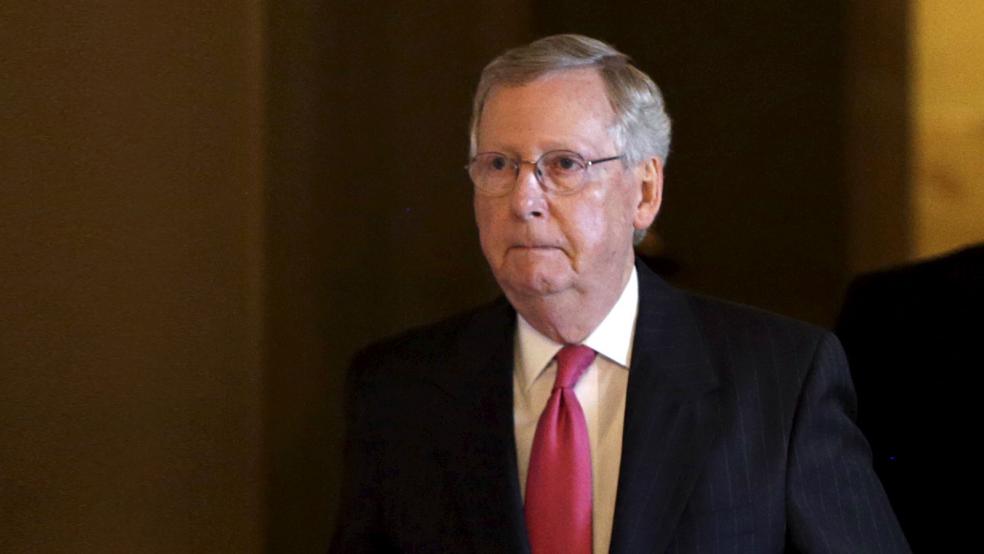Centers for Disease Control and Prevention Director Thomas Frieden said late last week that "we are now essentially out of money" to combat Zika and warned that – within the coming months – many pregnant women infected with the dreaded virus will give birth to children with microcephaly, a grotesque deformity of the head and brain.
“Congress needs to do something,” he declared.
There were encouraging signs on Monday that Congress will finally approve $1.1 billion in funding to combat the mosquito-borne virus throughout the U.S. and overseas and help develop a vaccine. It will be part of a much larger “continuing resolution” designed to keep the government operating through Dec. 9 – well past the start of a new fiscal year and the November election.
Related: Funding to Stop the Spread of Zika Tops Congress’s Agenda
President Obama said Monday afternoon that he was “encouraged” that Congress will be able to agree to a short term spending measure that would include emergency funds for combatting Zika and Louisiana disaster relief. His comments followed a meeting at the White House with Senate Majority Leader Mitch McConnell (R-KY), House Speaker Paul Ryan (R-WI), and Democratic congressional leaders. McConnell suggested that the Senate might wrap up work on the unwieldy package by the end of the week and then send it on to the House for further action.
"I expect to move forward this week on a continuing resolution through Dec. 9 that includes funds for Zika control and for our veterans," the Senate Republican leader announced earlier in the day on the Senate floor.
McConnell's drive for a spending bill that goes to December has pitted him against the influential conservative House Freedom caucus whose members want a longer-term measure that would carry the government into early 2017 and allow a new president and a new Congress to cut the final deal on long-term spending.
The House ultra-conservatives fret that Democrats and Obama will breach the budget caps if they are allowed to close a final deal during the post-election lame duck session in November and December. They want to wait until Obama is gone and Trump is in the White House. The conservatives are also holding out for a restriction on funding for Planned Parenthood as part of the Zika spending package – a “poison pill” that Obama and the Democrats have vigorously refused to go along with.
Related: The Senate Dithers Again as Zika Virus Continues to Spread
McConnell’s urgency is also finally breaking a partisan roadblock that has delayed action on Zika for months and has much to do with election-year politics as it does about the mounting concerns over a growing public health crisis.
Although Congress has been back to work for barely a week after a lengthy, seven-week summer recess, McConnell is eager to get his Republican colleagues back on the road campaigning for re-election in what is shaping up as an extremely close November 8 presidential and congressional election.
For months it appeared that the Democrats were in solid shape to win back control of the Senate this fall. The Republicans hold a narrow 54 to 44 seat margin in the Senate and must defend 24 seats this fall. That means that the Democrats need a net gain of just five seats to regain control of the Senate (or four if Clinton wins and her vice president can break a tie to reorganize the chamber). That would be critically important to the Democrats in creating a political firewall to block Republican efforts to dismantle the Affordable Care Act or push through unacceptable, conservative nominees to the Supreme Court if Trump prevails as president.
University of Virginia political scientist Larry J. Sabato, writing recently in his “Crystal Ball” political blog, said that the Democrats “have a good chance to grab at least a tie (broken by the new vice president) and possibly a majority of as many as several seats.”
Related: How Marco Rubio Could Save the Senate for the GOP
“A net gain of four to produce a tie might be the minimum Democrats can expect,” Sabato wrote. “A few more seats would strengthen Democrats for what will be a titanic struggle to hold on in 2018, when a low-turnout midterm will combine with a seat pattern that favors the GOP.”
However, other analysts sense a turning of the tide for the Republicans, especially with Sens. Marco Rubio of Florida and Rob Portman of Ohio well on their way to impressive general election victories after some question about whether those two seats would remain in Republican hands, and a handful of other incumbents who have struggled for months suddenly catching on.
A new Quinnipiac University Poll last week showed Rubio and Portman with comfortable leads in their races, while Republican Sen. Richard Burr of North Carolina is a head of his Democratic challenger and GOP Sen. Pat Toomey of Pennsylvania closing in on Democratic frontrunner Katie McGinty.
Chris Cillizza, editor of The Washington Post’s “The Fix” blog post, wrote yesterday that the Republicans “have a real chance to retain their Senate majority,” and credited the strong showing by Rubio and Portman as a major factor. That’s because with those two key races pretty much in the bad, that will free up substantial GOP campaign funds to spend in Pennsylvania, New Hampshire, North Carolina, among others.





